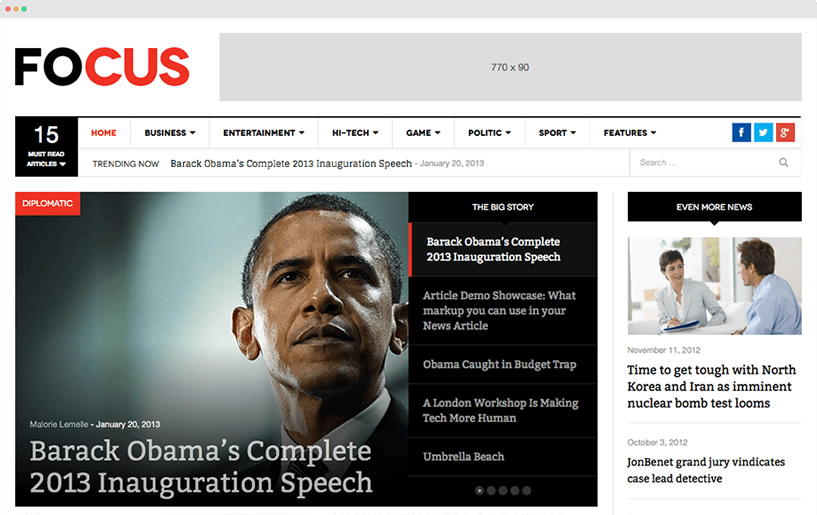News Websites - The Facts
News Websites - The Facts
Blog Article
Things about News Websites
Table of ContentsNews Websites Can Be Fun For AnyoneEverything about News Websites6 Simple Techniques For News WebsitesA Biased View of News WebsitesThe Only Guide for News Websites
It was down in the UK and Brazil however up some various other nations, such as Greece, Bulgaria, and Poland (News Websites). This year, for the very first time, we asked concerning the different manner ins which people prevent the news and found that around half of avoiders (53%) were attempting to do so in a broad-brush or periodic means for instance, by turning off the radio when the information began, or by scrolling past the information in social media sitesYou said that you attempt to proactively avoid information.

I'm probably selecting to find out more light-hearted stories than I made use of to right now. M, 51, UK Switching my back on information is the only method I feel I can deal sometimes. I have to knowingly make the initiative to turn away for the purpose of my very own mental wellness.
Examine This Report about News Websites
Careful avoidance of Ukraine news was highest possible in much of the nations closest to the dispute, strengthening findings from our added survey in 2015, soon after the battle had actually started. Our information might not recommend an absence of interest in Ukraine from close-by countries yet rather a desire to handle time or secure psychological health from the very real scaries of battle.
Contrasting Finland with a politically polarised country such as the United States (see following chart) that is much less influenced by the war, we find a really different pattern of topic avoidance. In the USA, we find that consumers are most likely to avoid subjects such as nationwide politics and social justice, where debates over issues such as sex, sexuality, and race have ended up being very politicised.
American politics are rather toxic nowadays. I find often that I have to disconnect from tales that simply make me angry. F, 61, USA For some individuals, bitter and divisive political discussions are a factor to turn off news completely, but also for some political partisans, avoidance is usually concerning obstructing out point of views you do not intend to listen to.

See This Report on News Websites
Some are wanting to make news more accessible for hard-to-reach teams, expanding the information program, commissioning more inspiring or favorable news, or welcoming constructive or remedies journalism that offer individuals a feeling of hope or personal agency. In our survey this year, we asked respondents regarding their interest in these various methods.
This explains why stories like Ukraine or nationwide politics execute well with information regulars however can at the very same time transform much less interested users away (News Websites). Selective avoiders are less thinking about all sorts of news than non-avoiders but in family member terms they do appear to be much more interested in positive or solutions-based news

A Biased View of News Websites
2023). This might be real in the minute, yet gradually it seems to be leaving many individuals empty and much less completely satisfied, which may be undermining our connection with and count on the news. Throughout markets, total rely on information (40%) and rely on the resources individuals use themselves (46%) are down by an additionally 2 percentage points this year.
Via the rear-view mirror, the COVID-19 count on bump is clearly visible in the adhering to graph, though the instructions of traveling afterwards has actually been blended. Sometimes (e.g. Finland), the trust boost has actually been kept, while in others the upturn looks more like a blip in a tale of continued lasting decline.
Several of the highest possible reported degrees of media criticism are found in nations with highest degree of mistrust, such as Greece, the Philippines, the United States, France, and the UK. The most affordable degrees of media objection frequent those with greater levels of trust, such as Finland, Norway, Denmark, and Japan.
Not known Facts About News Websites
This year we asked participants about their choices for text, sound and video when eating news online. Typically, we locate that the bulk still favor to review the information (57%), as opposed to watch (30%) or listen to it (13%), yet more youthful individuals (under-35s) are most likely to pay attention (17%) than older groups.
Behind the standards we discover significant and surprising nation differences. In markets with a strong analysis practice, such as Finland and the United Kingdom, around 8 in ten still like to review on the get redirected here internet information, but in India and Thailand, around 4 in ten (40%) state they prefer to see news online, and in the Philippines that proportion is over fifty percent (52%).
Report this page